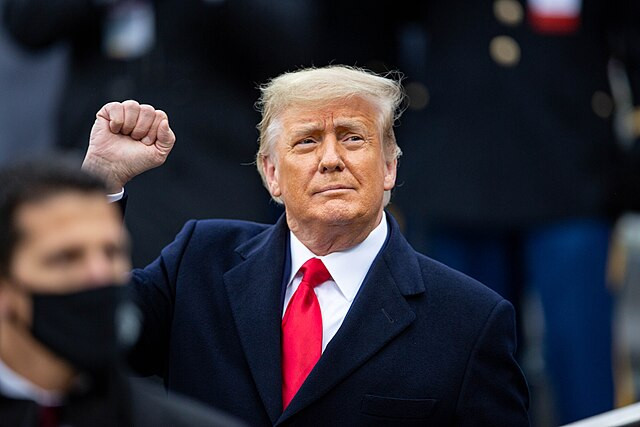The U.S. Supreme Court on Monday declared that former President Donald Trump is immune from prosecution for certain actions he took while in office related to his efforts to challenge the 2020 election results. The decision, which passed with a 6-3 majority, reflects the ongoing complexities in efforts to prosecute Trump on criminal charges alleging election fraud.
The court's decision, written by Chief Justice John Roberts, asserts that former presidents have "absolute" immunity from criminal prosecution for actions that fall within their "core constitutional powers." However, it left unresolved whether Trump's interactions with then-Vice President Mike Pence and state officials in the lead-up to the January 6 Capitol riot are immune. This nuance sends the case back to the trial court for further examination.
The ruling knocked out some central allegations by Special Counsel Jack Smith, including claims that Trump attempted to use the Justice Department to propagate false claims of voter fraud. Trump celebrated the decision, posting on his social media platform, Truth Social: "Big win for our Constitution and democracy, proud to be an American!"
Chief Justice Roberts wrote, "There is no immunity for unofficial acts," highlighting that actions Trump took in his capacity as a private individual or candidate do not enjoy the same protections. This critical distinction means U.S. District Judge Tanya Chutkan must now separate Trump's official acts from his private ones, potentially delaying the trial until after the 2024 presidential election.
The decision has deepened the ideological divide within the Supreme Court. Justices Sonia Sotomayor, Elena Kagan, and Ketanji Brown Jackson dissented sharply, calling the majority's ruling "utterly indefensible" and a deviation from the founders' vision.
"The damage has been done. The relationship between the President and the people he serves has shifted irrevocably," Sotomayor wrote. "In every use of official power, the President is now a king above the law."
Roberts defended the majority's decision, emphasizing the need for a strong, independent executive branch. "The system of separated powers designed by the Framers has always demanded an energetic, independent Executive," he wrote. "That immunity applies equally to all occupants of the Oval Office, regardless of politics, policy, or party."
The Supreme Court's ruling mandates that Judge Chutkan conduct a careful review to determine which of Trump's actions are protected by immunity. This process could extend the timeline of the trial, making it unlikely that a verdict will be reached before Election Day 2024.
Special Counsel Jack Smith has charged Trump with four felonies, accusing him of attempting to subvert democracy and disenfranchise millions of voters. A trial on these charges would significantly impact Trump's presidential campaign, potentially forcing him to spend substantial time in Washington, D.C., during the campaign's final stretch.
The decision also holds implications for a separate election subversion case against Trump in Georgia. There, a state court judge will need to conduct a similar review to determine whether any of the charges should be dismissed under the same principles of presidential immunity.
The high court's handling of Trump's appeal has already contributed to significant delays. The special counsel had requested an expedited review to avoid stalling the trial, but the justices preferred to wait for the lower courts to rule.






